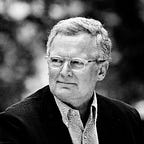How we create dictators
Fear begets blame and blame begets anger. And anger begets conflicts — always.
Dire economic outlooks typically lead to emotional reactions and social fragmentation. This always results in bad decisions and unnecessary confrontations. Then frustrations increase further as the established ways of doing things come under greater attack. Somebody must be to blame. Irritation over the perceived ineffectiveness of democratic governance systems then creates the wish for a savior, a strong person, a proud party, to come and clear up the mess. This is how we create dictators; this is how populist parties come into power. This is how Hitler was elected. This is what is happening again. Leaders are elevated to heroes, even to messiahs.
The same dynamic is still today inbuilt into our political and social systems and should be understood when we try to figure out what may happen next.
Rather than trying to resolve situations through discourse, populist politicians always do two things: they fall back on whatever historical examples support them. “It was better then” although “it” might have been tens or even hundreds of year ago. Secondly, they increase tensions through ”us versus them” rhetoric in pursuit of support among their own kin. We face a repeating social pattern: with growing economic difficulties, the populist stance is talk about pride based on past fame. Then the thing to do is to “make x great again”, and to blame others, typically outsiders, for the present situation leading to claims that “we need to close our borders. Let’s build walls”.
Aristotle had interesting ideas to explain what is going on in the economy. He made a distinction between two kinds of value added — one that we get from nature’s resources to sustain our lives, and another that we create to facilitate our relationships and trade.
The value added in the latter does not begin from nature, but from us, our wants, relationships and the promises we make to one another. From trust. As an example, the whole financial system, even today, is only about promises and trust in those promises.
There are limits to what we can get from nature or utilize, but, according to Aristotle, since money is promises, there is no end to the amount of money we can aspire to collect. What is special about money, Aristotle says, is that its value is set by mutual agreement. It has absolutely no intrinsic use value, only an exchange value, and it keeps that value only as long as people agree to accept it in payment. As long as there is trust.
Therefore it is understandable that the expanding dynamic of trust can reach a point where promises are just not believed any more. After that limit is passed, the result is a sudden and deep crisis because there is nothing in between: either you trust or you don’t.
If you don’t, the whole house of cards collapses because it is made of promises that don’t have any value any more. Fear replaces trust and fear, as we know, travels very fast.
At the moment, it does not take much distrust to cause solvency problems for highly leveraged and highly interdependent actors such as banks, or countries. We are all deeply interdependent and we are even more dependent on building and sustaining trust. This is why fear and blame are so dangerous.
Fear begets blame and blame begets anger. And anger begets conflicts — always.
The only way to sustain democracy in a totally interdependent world is to work together and share the burdens and the efforts — whatever happens — not only to us, but also to those “others”, so that also “they” can trust us.
Without trust there is no democracy. This explains why trust is the number one target for attacks today.
